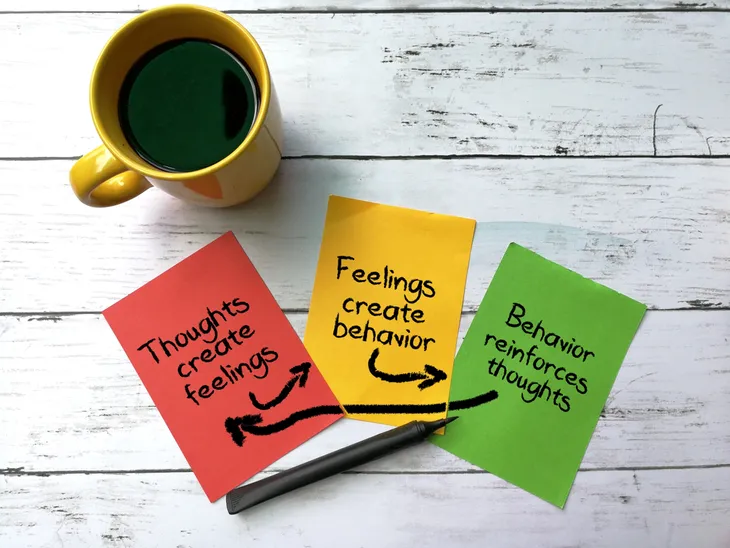About 1 in 5 Americans will have a mental illness of varying severity according to the National Institute of Mental Health. Some people consult a mental health professional to dig deeper into an issue, while others may also require medication that can help in the process. According to Psych Central, more than 577,000 mental health professionals are practicing in the country. But which type of mental health expert should you see?
Whether you’re dealing with a mental illness or just need someone to talk to, a mental health professional may be able to help. In our complete guide to psychiatry and counseling, we look into the different types of professionals and how they can help you!
Psychiatrist
This type of mental health professional might be the first one you think of when seeking help. A psychiatrist is actually a doctor who is trained to diagnose and treat mental illnesses. They can also help determine if there’s an underlying cause that could be contributing to the mental illness.
A large part of treatment from a psychiatrist is focused on prescribing medications, which can be especially helpful for mental health conditions such as bipolar disorder and anxiety, notes WebMD. While a psychiatrist can provide some level of counseling regarding your mental health, they may also refer you to another professional that specializes in psychotherapy.
Psychotherapist
It seems logical that we explain this category next. Healthline points out that the term psychotherapist is more of an umbrella term, and means those who provide “talk therapy.”
Psychotherapy can come in many forms, both individual and group sessions. These can include “therapeutic conversations,” as well as the popular cognitive behavioral therapy to help people challenge their own thought patterns.
CBT Therapists
Some health professionals focus primarily on delivering cognitive behavioral therapy (CBT), a form of psychotherapy that includes a set number of sessions. The American Psychological Association explains that CBT is effective for a range of mental health issues including depression, anxiety, eating disorders, and substance abuse. “In many studies, CBT has been demonstrated to be as effective as, or more effective than, other forms of psychological therapy or psychiatric medications,” it notes.
CBT is based on the principle that many psychological issues are rooted in unhelpful thought patterns and behaviors. This type of therapy teaches problem-solving skills that can help you deal with difficult situations, face fears, and also gain more insight into behaviors.
CBT encourages patients to practice outside of sessions, thus “helping individuals to be their own therapists,” notes the source. Any recognized mental health professional/social worker with specific training in CBT could offer it.
Counselor
Many people use “counselor” as an alternative term for psychotherapists, but they’re not exactly the same, explains Medical News Today. Both can talk with you about your issues to help you resolve them without the use of medications, but counselors are more specific to a certain issue.
For example, some counselors (who are “masters-level clinicians”) may specialize in mental illnesses, while others are trained as addiction or marriage counselors. Be sure to determine their field of expertise first.
Psychologist
These mental health professionals are not medical doctors and generally cannot write prescriptions. However, they are highly trained in matters of the brain and are backed by a doctoral degree. They can also diagnose and address mental disorders.
Psychologists can provide counseling and psychotherapy, and provide “psychological testing.” Psychologists also often work in tandem with psychiatrists or other doctors to provide medical treatments.
Psychoanalyst
Healthline explains that this type of practitioner “follows the theories and practice of Sigmund Freud.” More specifically, a psychoanalyst digs deeper into unconscious triggers that may be contributing to the issue.
A psychoanalyst will use techniques such as “dream interpretation” to get to the root of a matter. While some people find this type of approach helpful to unlock “deep psychological and emotional disturbances,” the title of the psychoanalyst is not officially protected by federal or state law, it warns. Proceed with caution.
Social Worker
A social worker can specialize in many areas, some that relate to mental health and substance abuse. Social workers are also known to help resolve issues involving disabilities, housing, and unemployment. Additionally, some social workers intervene in family problems that include abuse.
Social workers do not prescribe medications, but they may refer you to a doctor who can diagnose a mental health issue. Furthermore, clinical social workers may offer their services in a psychiatric hospital setting to help people adapt to everyday life when discharged.
Family Doctor
If you’re not sure what type of mental health professional you should be seeing, your family doctor is a good place to start. A family MD may be able to direct you to the correct mental health specialist based on your conversation.
In some cases, you will need a referral from your doctor for an appointment. Your MD may even recommend lifestyle changes that can help or offer medicine.
A family doctor can help you “better understand what you are going through,” and assure you it’s a medical issue that can be addressed. They can also set follow-up appointments to measure how well you’re responding to any treatment. “So, don’t be afraid to reach out for help. Your family doctor is a good place to start,” notes Family Doctor.org.











